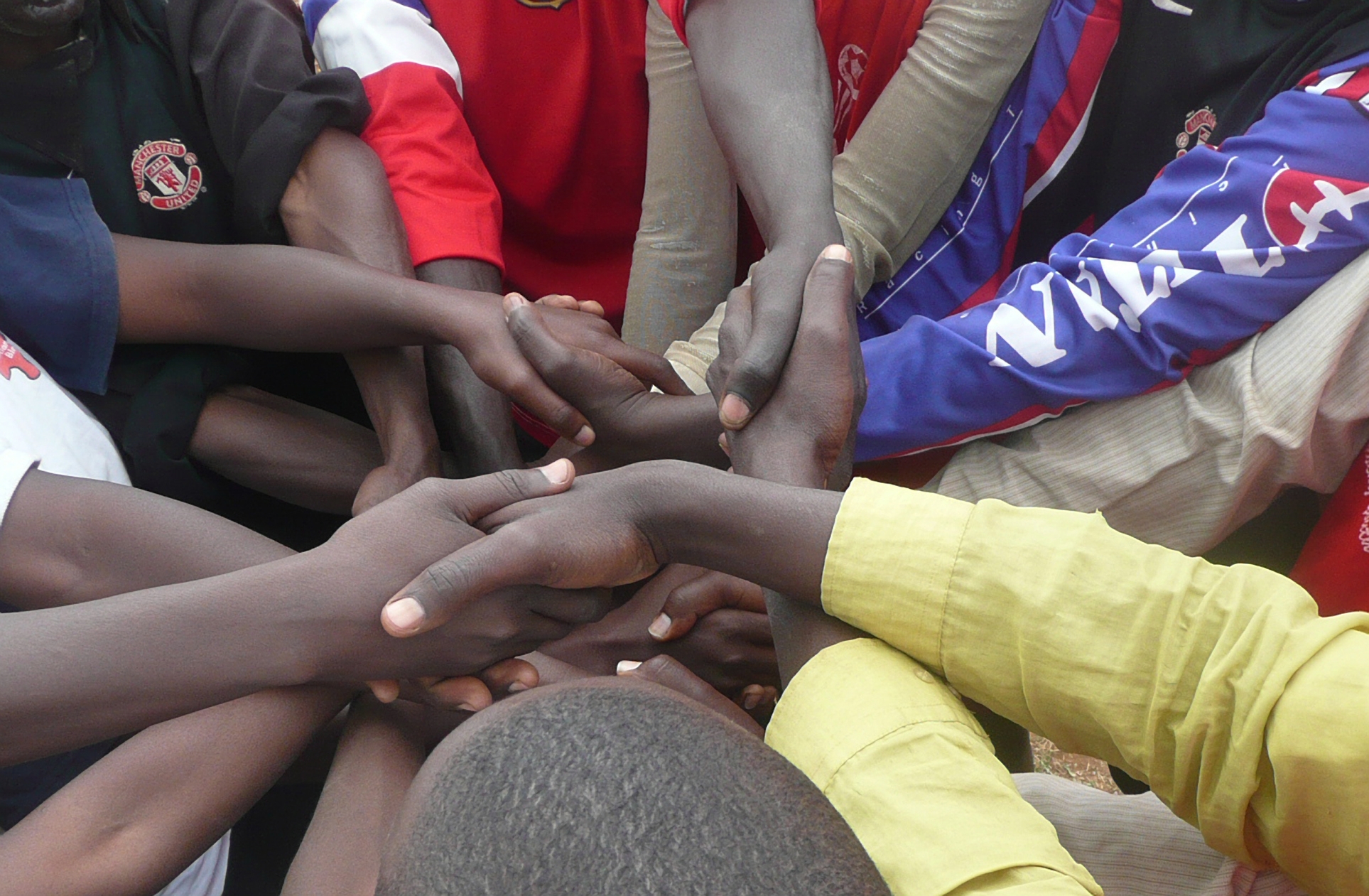
This blog is part of a series organized by The Huffington Post and the NGO allianceInterAction around the London 2012 Olympics.
After being shot in the chest with an arrow, David was forced to wait nearly two weeks for treatment. Lack of medical resources wasn't the problem -- even though an ambulance took David almost immediately to the hospital, members of an opposing tribe refused to operate on him. "I had so much hatred towards the Nandis because of the pain I had. I used to see these people as animals," David explained.
Peter and his uncle were forced out of their compound by an angry mob. They tried to run, but his uncle tripped and was overwhelmed. Peter watched as his uncle was murdered and his family's business was destroyed. He struggled to overcome his hopelessness: "After the violence, I realized that life had changed. We were refugees in our own country... I felt like my life was over, because I had lost everything."
David and Peter's lives were both devastated by the violent, multi-ethnic clashes following Kenya's disputed 2007 elections that left 1,500 people dead and displaced an additional 600,000. In the ensuing months, both youth harbored deep resentment for people of opposing tribes. Youth made up 70 percent of participants in the violence, many paid by politicians to attack members of other groups or destroy property, or frustrated by the lack of opportunities in a country where 75 percent of out-of-school youth do not have regular employment.
Kenya's violence demonstrates that youth have the capacity for destruction. Yet with over half the global population under the age of 25, youth also have an unprecedented ability to shape the future. Especially in transitional environments and fragile states (where 85 percent of the world'syouth live), youth are often at the forefront: whether leading the Arab Spring, recruited into violent activities, or helping their communities build back after disasters or conflict.
In Kenya, Mercy Corps used sports to help youth overcome the uncertainty following the violence to reestablish social ties and trust. Sports provided a natural convening point for youth from different tribes and an opportunity to teach valuable life skills. Working alongside the local Africa Sports and Talents Empowerment Program (A-STEP) and with support from Nike, Mercy Corps launched the Local Empowerment for Peace (LEAP) Sport program, bringing together young people in multi-ethnic teams to build tolerance and generate dialogue. Coaches, each a trained facilitator in Mercy Corps' peace curriculum, integrated sports with conflict prevention and peace promotion activities.
Photo by: Nathan Plowman/Mercy Corps
After one year, 89 percent of participants agreed that the program improved their ability to resolve conflicts. They also reported greater trust in members of other tribes and willingness to cooperate on joint projects.
Through LEAP Sport, David and Peter both overcame their internal conflict and became advocates for cooperation between different ethnic groups.
David: "... the peace curriculum has guided us well. Before, I could not be around Kiprotich (Kalenjins). Now I can live with them. I could not be around Omondi (Luos). Now I can live with them. Now we are living together. Now if someone new comes I teach him how to live with others, not to hurt others."
Peter: "I've changed. We can now sit, talk, and eat all together. We can share our stories and problems. We can laugh together. The violence changed people. But now, life is starting to come back to normal. On my part, there have been great changes. I have reduced my anger towards others."
David and Peter's views give reason to be optimistic as Kenyans anxiously prepare for general elections in March next year and hope to avoid a repeat of the 2007 violence.
Over the last five years, Mercy Corps' Sport for Changeprograms have reached 50,000 youth in over 25 countries. Each program's approach is uniquely suited to the needs of youth in each country. In Kenya, Sri Lanka, and other communities recovering from conflict, sports programs integrate a peace curriculum to foster bridge divisions and prevent a return to violence. In Gaza, Haiti, Libya and other disaster-struck regions, programs focus on improving resilience and self-esteem to help youth resume normal life after emergencies. In Central African Republic and Haiti, programs help youth prevent HIV and AIDS. As the world watches athletes from 205 countries compete in London this month, we should be reminded of the potential of sports to help youth accomplish feats that won't land them on a podium -- but are arguably more valuable than an Olympic medal.
Mercy Corps helps people turn the crises they confront into the opportunities they deserve. Driven by local needs, our programs provide communities in the world's toughest places with the tools and support they need to transform their own lives. Visit mercycorps.org for more information
